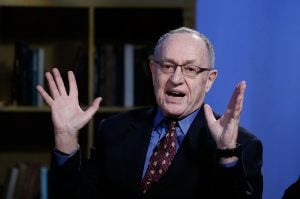At the U.S. Supreme Court (photo by David Lat).
Two weeks ago, I shared with you the complete roster of Supreme Court clerks for October Term 2020, which will officially begin on the first Monday of October. That start date remains unchanged, even if the Court will probably still be doing telephonic arguments then.
As promised in my last post, here’s a deeper dive into the demographics of the OT 2020 clerk class. Let’s jump right in, starting with….
1. Gender. The class contains 38 clerks: four clerks to each of the nine active justices except for Justice Ginsburg, who’s getting five — the fifth being Thad Eagles, originally hired by the late Justice Stevens — plus one clerk to retired Justice Kennedy (I’m not sure why retired Justice Souter is no longer hiring a clerk). Of the 38 clerks, 22 are men and 16 are women, making for a class that’s 58 percent male and 42 percent female.
That’s about the same as the October Term 2019 clerk class, which was 59 percent male and 41 percent female. It’s a bit lower in the representation of women than the October Term 2018 clerk class, which was the first majority-female clerk class in SCOTUS history (thanks in part to Justice Kavanaugh’s all-female class of clerks in OT 2018, another first for the Court).
Speaking of Justice Kavanaugh and gender equality among SCOTUS clerks, look ahead to his clerk cohort for October Term 2021 (listed below) — another group of four women. Assuming no other justice has an all-female clerk class in OT 2021 — which seems quite likely, based on history — Justice Kavanaugh will have had two all-female clerk classes before any other justice has had even one. This also means that of the 16 clerks hired in his first four terms, 13 will have been women.
The unfortunately small number of women advocates who appear regularly before the Court, as well as the relatively small number of women judges and justices, is partly the result of the gender disparity among the ranks of Supreme Court clerks, who are disproportionately represented among the ranks of top appellate lawyers, federal judges, and Supreme Court justices. If we want to improve the representation of women in these groups, we need to have more women as SCOTUS clerks. So kudos to Justice Kavanaugh for being part of the solution on this issue.
2. Feeder schools. Last term, October Term 2019, the group of law schools producing Supreme Court clerks was impressively diverse, with a dozen schools minting SCOTUS clerks. This term, October Term 2020, the pendulum has swung back toward elitism, with just seven leading law schools producing all 38 clerks. Here’s the ranking, with the number of clerks noted parenthetically:
- Yale (15)
- Harvard (7)
- Chicago (5)
- NYU (4)
- Stanford (3)
- UVA (2)
- Michigan (2)
For OT 2020, the top three feeder schools remain the same as those of OT 2019, in the same order — with Yale actually improving its haul of SCOTUS clerkships to 15 (up from 11 last term), followed by Harvard with seven and Chicago with five. NYU had an unusually strong showing in OT 2020, taking fourth place with four clerks — and putting its uptown rival Columbia, which had no clerks this term, to shame.
3. Feeder judges. Like the ranks of feeder schools, the ranks of feeder judges contracted slightly this term as well. For this term, OT 2020, a total of 39 different lower-court judges sent clerks to One First Street, compared to 47 judges for OT 2019.
Here are the feeder judges with more than one clerk at the Court for OT 2020, with the number of clerks noted parenthetically:
- Katzmann (4)
- W. Pryor (4)
- Srinivasan (4)
- Sutton (3)
- Wilkinson (3)
- Boasberg (D.D.C.) (3)
- Rakoff (S.D.N.Y.) (3)
- Furman (S.D.N.Y.) (3)
- Calabresi (2)
- E. Carnes (2)
- Garland (2)
- Katsas (2)
- Kethledge (6)
- Watford (2)
- Oetken (S.D.N.Y.) (2)
A few other observations:
(a) Chief Justice Roberts disappointed conservatives with a number of his votes in OT 2019, leading one court watcher I know to complain that JGR is now basically “a moderate Democrat.” And in terms of his clerk hiring practices, he looks like a moderate Democrat too.
For OT 2020, the Chief’s four clerks served eight different lower-court judges. Of those eight judges, five were appointed by Democratic presidents, and three were appointed by Republican presidents. And looking ahead to OT 2021, his one hire so far clerked for two Democratic appointees.
(b) As I tweeted previously at @SCOTUSambitions, where I report SCOTUS clerk hires in something closer to real time, there’s actually a fair amount of “across the aisle” clerk hiring these days. For example, take Chief Judge Sri Srinivasan, appointed to the D.C. Circuit by President Barack Obama (and considered by Obama for SCOTUS). Chief Judge Srinivasan’s three most recent feeds all went to Republican appointees: Chief Justice Roberts, Justice Kavanaugh, and Justice Kennedy.
This hasn’t always been the case. Back in 2010, for example, Adam Liptak wrote a New York Times article about how heavily justices hired clerks from lower-court judges appointed by a president of the same party as the justice’s.
In an age of increased political polarization, it’s nice to see the Supreme Court transcending politics, at least to some extent — in its rulings, as Professor Akhil Reed Amar argued in a recent Times op-ed, and in its clerk hiring as well.
(c) An interesting new trend: clerking for two federal appellate judges.
The reason there are so many feeder judges, and more feeder judges than there are clerks, is because many SCOTUS clerks serve multiple clerkships before coming to the Court. The most typical path is to clerk for a district judge and a circuit judge (e.g., the tag team of Judge Rakoff and Chief Judge Katzmann). But as you can see in the list of OT 2020 clerks below, clerking for two circuit judges is now becoming “a thing,” as the kids say.
I personally think the combination of a district and circuit clerkship is professionally preferable to two circuit clerkships. Trial and appellate clerkships are different experiences, and you learn different from things from each one. But some clerks with a “SCOTUS or bust” attitude find that having two former circuit judges who can go to bat for them is helpful when it comes time to apply to clerk for the Court. Two feeders is better than one, right?
4. Ms. Irrelevant. As longtime readers of Supreme Court Clerk Hiring Watch know, each year I prepare a special profile of the last clerk whose hiring I learn about. It’s ATL’s version of the NFL’s Mr. Irrelevant.
Or in this case, Ms. Irrelevant — Amy Upshaw (Chicago 2016/Sykes), clerking for Justice Thomas. So here’s some background and a few fun facts about Amy.
Amy R. Upshaw graduated from the University of South Carolina, where she was a McNair Scholar — a recipient of the most prestigious undergraduate scholarship at USC. She then went on to the University of Chicago Law School, where she served as Comments Editor for The University of Chicago Law Review. She graduated from Chicago with honors in 2016, then clerked for Judge Diane Sykes of the Seventh Circuit — a prominent feeder judge and a SCOTUS shortlister for President Donald Trump.
(Digression: Judge Sykes is now 62, turning 63 in December, so she’s probably out of the SCOTUS running now. All eyes are now on a younger female Seventh Circuit jurist, Amy Coney Barrett (who’s not even 50). But Judge Sykes can always treasure the shoutout she received in February 2016 from then-candidate Trump, who cited her during a presidential debate after the death of Justice Scalia as exactly the type of judge he’d appoint to the Court.)
After clerking for Judge Sykes, Amy Upshaw worked as an associate in the D.C. office of King & Spalding, where she focused on appellate and constitutional law. As a graduate of a top state university (where she received a top scholarship), a graduate of a top law school (with honors), a former law clerk to a top feeder judge, and a former associate at a top Biglaw firm, Amy seems to be a typical SCOTUS clerk in many ways.
But Amy is more interesting than the sum of her resume items. Let’s turn to the more personal, shall we?
Like many SCOTUS clerks, Amy has a high-powered spouse: Margaret Upshaw, her former Chicago Law classmate. Maggie clerked for Judge William Fletcher (9th Cir.), served as a Bristow Fellow in the Office of the Solicitor General, and now works as a litigation associate in the Washington office of Latham & Watkins.
(I’m guessing that Maggie took Amy’s surname, since Amy was Amy Upshaw back in college. Also, please note that I’m not “outing” Amy; this 2016 article on the Chicago Law website notes her marriage to Maggie.)
Friends of the couple inform me that Amy and Maggie Upshaw are like the same-sex version of Mary Matalin and James Carville — i.e., a conservative/liberal couple. Maggie is liberal — not surprising, given that she’s a graduate of a top law school (even the somewhat more moderate U. Chicago still skews left), as well as a former law clerk to Judge Willy Fletcher, a leading liberal light of the Ninth Circuit. Meanwhile, Amy is conservative: she grew up (Tennessee) and went to college (South Carolina) in the South, she lists the Bible as a favorite book, she clerked for a conservative circuit judge, and she’s now clerking for a conservative justice.
(And no, Justice Thomas doesn’t do the whole “counter-clerk” thing. As he memorably quipped, “I won’t hire clerks who have profound disagreements with me. It’s like trying to train a pig. It wastes your time, and it aggravates the pig.”)
Is it surprising that Justice Thomas has hired an LGBTQ clerk? Not really. Although he is Catholic and conservative, Justice Thomas never had the same problem with same-sex marriage that, say, the late Justice Scalia did. Although he joined Justice Scalia in dissenting from Lawrence v. Texas, in which the Supreme Court invalidated Texas’s sodomy law, Justice Thomas wrote a separate dissent in which he opined that Texas’s law was “uncommonly silly.” As Justice Thomas further explained, “If I were a member of the Texas Legislature, I would vote to repeal it. Punishing someone for expressing his sexual preference through noncommercial consensual conduct with another adult does not appear to be a worthy way to expend valuable law enforcement resources.
And I don’t even think that Amy Upshaw is Justice Thomas’s first LGBTQ clerk. Again relying on information that’s already public, Matthew Berry (who overlapped with me in law school) is openly gay and clerked for Justice Thomas. (I don’t know whether Matt was out at the time of his clerkship, but I wouldn’t be surprised if he was.)
(Digression: like Justice Thomas, Judge Sykes has also had gay clerks in the past. See, e.g., Josh Handell — whose August 2018 wedding to William Clayman was actually officiated by Judge Sykes.)
What else can we add about Amy? We’ve heard from a few folks who know her, and they sing her praises — describing her as a brilliant lawyer, a wonderful person, a devoted mother (she and Maggie have a young child), and a worthy clerk to Justice Thomas.
So congratulations to Amy Upshaw — and to all of her fellow law clerks for October Term 2020, listed below, along with a few hires for OT 2021 and OT 2022.
If you have any corrections to this information, or if you have any hiring news I have not yet reported, please reach out by email or text (917-397-2751). Please include the words “SCOTUS Clerk Hiring” in your email or text message, perhaps as the subject line of your email or the first words of your text, because that’s how I locate these tips in my overwhelmed inbox. Thanks!
OCTOBER TERM 2020 SUPREME COURT CLERK HIRES
Chief Justice John G. Roberts
1. Leslie Arffa (Yale 2018/Livingston/Boasberg (D.D.C.))
2. Patrick Fuster (Chicago 2018/Watford/Chhabria (N.D. Cal.))
3. Benjamin Gifford (Harvard 2017/Rakoff (S.D.N.Y.)/Katzmann)
4. Stephen Hammer (Harvard 2018/Sutton/Katsas)
Justice Clarence Thomas
1. Philip Cooper (Chicago 2017/W. Pryor/Stras)
2. Joshua Divine (Yale 2016/W. Pryor)
3. Jack Millman (NYU 2016/O’Scannlain/E. Carnes)
4. Amy Upshaw (Chicago 2016/Sykes)
Justice Ruth Bader Ginsburg
1. Jack Boeglin (Yale 2016/Srinivasan/Calabresi)
2. Thaddeus Eagles (NYU 2015/Rakoff (S.D.N.Y.)/Katzmann)
3. Eliza Lehner (Yale 2017/Watford/Furman (S.D.N.Y.))
4. David Louk (Yale 2015/Boasberg (D.D.C.)/Katzmann)
5. Brittany Jones Record (Stanford 2016/Sutton/Millett)
Justice Stephen G. Breyer
1. Emily Barnet (Yale 2015/Rakoff (S.D.N.Y.)/Katzmann)
2. Diana Li Kim (Yale 2017/Hall (D. Conn.)/Calabresi)
3. Arjun Ramamurti (Yale 2018/Garland/Pillard)
4. Daniel Richardson (UVA 2018/Wilkinson/Bristow)
Justice Samuel Alito
1. Taylor Hoogendorn (Yale 2018/Wilkinson/Katsas)
2. Mary Miller (U. Michigan 2016/Owen/Leon (D.D.C.))
3. Maria Monaghan (UVA 2017/Thapar/E. Carnes)
4. David Phillips (Harvard 2018/Colloton/Silberman)
Justice Sonia Sotomayor
1. Greg Cui (Yale 2017/Fletcher/Furman (S.D.N.Y.))
2. Kristen Loveland (NYU 2016/Furman (S.D.N.Y.)/Lohier)
3. Imelme Umana (Harvard 2018/Wilkins)
4. Sarah Weiner (Yale 2017/Tatel/Oetken (S.D.N.Y.))
Justice Elena Kagan
1. Peter Davis (Stanford 2017/Srinivasan/Boasberg (D.D.C.))
2. Madeleine Joseph (Harvard 2018/S. Lynch/Howell (D.D.C.))
3. Isaac Park (Harvard 2018/Srinivasan/Oetken (S.D.N.Y.)
4. Joshua Revesz (Yale 2017/Garland)
Justice Neil M. Gorsuch
1. James Burnham (U. Chicago 2009/Kozinski)
2. Trevor Ezell (Stanford 2017/Sutton/Oldham)
3. Krista Perry (U. Chicago 2016/W. Pryor/Kennedy)
4. John Ramer (Michigan 2017/Kethledge/Bristow)
Justice Brett M. Kavanaugh
1. Harry Graver (Harvard 2019/Wilkinson)
2. Tyler Infinger (NYU 2016/Rao)
3. Zoe Jacoby (Yale 2019/Barrett)
4. Megan McGlynn (Yale 2017/W. Pryor/Friedrich (D.D.C.))
Justice Anthony M. Kennedy (retired):
1. Ben Wallace (Yale 2016/Kethledge/Srinivasan)
OCTOBER TERM 2021 SUPREME COURT CLERK HIRES (as of August 3, 2020)
Chief Justice John G. Roberts
1. Maxwell Gottschall (Harvard 2019/Srinivasan/Boasberg (D.D.C.))
2. ?
3. ?
4. ?
Justice Clarence Thomas
1. Christopher Goodnow (Harvard 2017/Sykes/Katsas)
2. Manuel Valle (U. Chicago 2017/E. Jones/Larsen)
3. ?
4. ?
Hired by Justice Thomas for OT 2022: Bijan Aboutarabi (U. Chicago 2018/W. Pryor/Thapar).
Justice Ruth Bader Ginsburg
1. ?
2. ?
3. ?
4. ?
Justice Stephen G. Breyer
1. Elizabeth Deutsch (Yale 2016/Pillard/Oetken (S.D.N.Y.))
2. ?
3. ?
4. ?
Justice Samuel Alito
1. ?
2. ?
3. ?
4. ?
Justice Sonia Sotomayor
1. ?
2. ?
3. ?
4. ?
Justice Elena Kagan
1. Andra Lim (Stanford 2019/Friedland)
2. ?
3. ?
4. ?
Justice Neil M. Gorsuch
1. Stephanie Barclay (BYU 2011/N.R. Smith)
2. Louis Capozzi (Penn 2019/Scirica/Wilkinson)
3. Mark Storslee (Stanford 2015/O’Scannlain)
4. ?
Justice Brett M. Kavanaugh
1. Alexa Baltes (Notre Dame 2017/Gruender/Barrett)
2. Athie Livas (Yale 2019/Thapar/Friedrich (D.D.C.))
3. Jenna Pavelec (Yale 2017/Thapar/Kethledge)
4. Sarah Welch (Chicago 2019/Sutton/W. Pryor)
Hired by Justice Kavanaugh for October Term 2022: Thomas Hopson (Yale 2020/Katsas/Friedrich (D.D.C.)), Cameron Pritchett (Harvard 2018/Edwards/Gallager (D. Md.)), and David Steinbach (Stanford 2019/Boasberg (D.D.C.)/Srinivasan).
Justice Anthony M. Kennedy (retired):
1. ?
Once again, do you know about a hire not previously reported, or do you have an addition or correction to any of this info? Please share what you know by email or text (917-397-2751). Please include the words “SCOTUS Clerk Hiring” in your email or text message, as the subject line of your email or the first words of your text, because that’s how I locate these tips in my inundated inbox. Thanks!
Earlier:
 David Lat, the founding editor of Above the Law, is a writer, speaker, and legal recruiter at Lateral Link, where he is a managing director in the New York office. David’s book, Supreme Ambitions: A Novel (2014), was described by the New York Times as “the most buzzed-about novel of the year” among legal elites. David previously worked as a federal prosecutor, a litigation associate at Wachtell Lipton, and a law clerk to Judge Diarmuid F. O’Scannlain of the U.S. Court of Appeals for the Ninth Circuit. You can connect with David on Twitter (@DavidLat), LinkedIn, and Facebook, and you can reach him by email at dlat@laterallink.com.
David Lat, the founding editor of Above the Law, is a writer, speaker, and legal recruiter at Lateral Link, where he is a managing director in the New York office. David’s book, Supreme Ambitions: A Novel (2014), was described by the New York Times as “the most buzzed-about novel of the year” among legal elites. David previously worked as a federal prosecutor, a litigation associate at Wachtell Lipton, and a law clerk to Judge Diarmuid F. O’Scannlain of the U.S. Court of Appeals for the Ninth Circuit. You can connect with David on Twitter (@DavidLat), LinkedIn, and Facebook, and you can reach him by email at dlat@laterallink.com.














 Kathryn Rubino is a Senior Editor at Above the Law, and host of
Kathryn Rubino is a Senior Editor at Above the Law, and host of 









